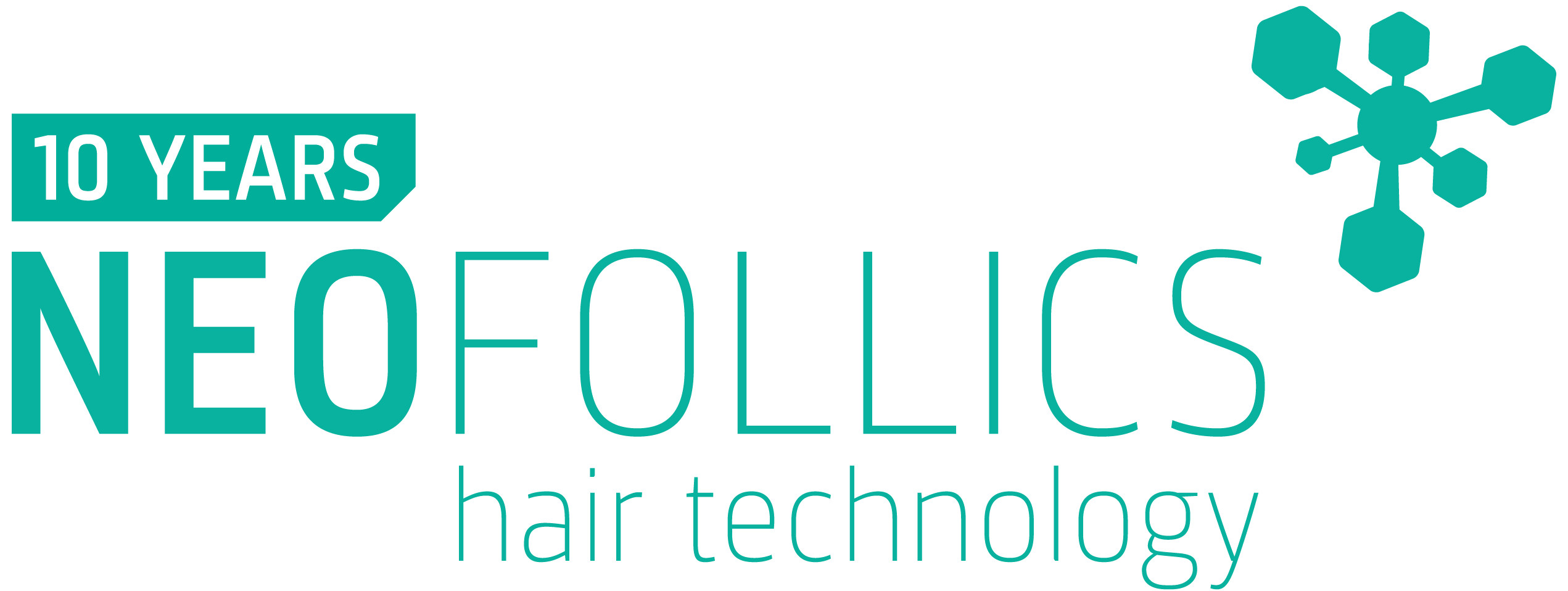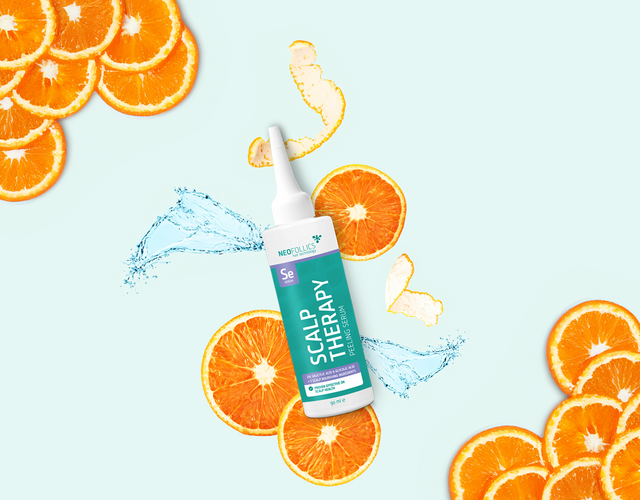You might recognize glycolic acid from a TikTok trend, but it is much more than that. Glycolic acid has many beneficial effects for those dealing with dandruff, dehydration, and flaky scalps. That’s why in this article you will find everything you need to know about Glycolic acid and what it potentially can do in your condition.

What is glycolic acid?
Glycolic acid is a type of alpha-hydroxy acid (AHA) that has become a popular ingredient in hair care products for its ability to exfoliate the scalp. It is derived from sugar cane and is the smallest AHA, making it highly effective at penetrating the skin's surface. Glycolic acid works by dissolving the bonds that hold dead skin cells together, allowing them to be easily washed away. This process of exfoliation helps to remove built-up dead skin cells, unclog pores, and reveal brighter, smoother skin.
What does glycolic acid do?
Glycolic acid is a versatile ingredient that can offer numerous benefits for your hair, skin, and scalp. As a type of alpha-hydroxy acid (AHA), glycolic acid is a powerful exfoliator that can works as a scalp dead skin remover and can help to unclog pores.
In hair care, products with glycolic acid for scalp exfoliating purposes help to remove dead skin cells and promote a healthy scalp. Using glycolic acid for hair can lead to healthier hair growth and reduced breakage and scalp irritation. The Neofollics glycolic acid serum, for example, is a high-quality exfoliator with glycolic acid that's designed specifically for the scalp.
For skin, the benefits of glycolic acid are many. Glycolic acid for skin can help to improve the look of fine lines and wrinkles, reduce the appearance of dark spots and hyperpigmentation, and improve overall skin texture. Products with glycolic acid, such as exfoliators, are great for all skin types, including sensitive skin and dry skin.
When using products with glycolic acid, it's important to follow the instructions carefully, as overuse or use of products with a high concentration of glycolic acid can cause irritation or dryness. If you want to use glycolic acid for sensitive skin, it's a good idea to carefully concentrate the usage of glycolic acid and gradually increase using it as your skin becomes more accustomed to the ingredient.
Is glycolic acid good for acne?
People that suffer from acne can benefit from glycolic acid for acne because of the peeling factors on the scalp. It removes dead skin cells and oil significantly and treats the pores resulting into less clog in the pores. The skin becomes clearer and the chance of having an acne breakout decreases.
Glycolic acid can also affect the outer skin barrier, helping it retain moisture instead of drying your skin out. This is an advantage for acne-prone skin because many topical anti-acne agents could be drying. Treatments with glycolic acid for dry skin, sun damaged skin and mature skin are nowadays commonly because glycolic serves as an exfoliator for your scalp and skin.
Glycolic acid vs salicylic acid
Salicylic acid versus glycolic acid have a totally different way of working. The main difference is that glycolic acid is a small molecule, which penetrates deeper into the skin and salicylic acid is a larger molecule that stays on the surface of the skin. Glycolic acid is an AHA while salicylic acid is a BHA.
Glycolic acid and salicylic acid together can form a popular skin or scalp care treatment. So, it is not a question whether you need to use salicylic acid or glycolic acid because both of them together can benefit your scalp condition even further.
The use of a peeling serum with glycolic acid and salicylic acid can offer you many benefits for the hair and scalp. Because glycolic acid has exfoliating properties and helps to remove dead skin cells from the surface of the scalp. Salicylic acid on the other hand combats skin conditions like acne and penetrates deep into the pores of the scalp, removing build-up of oils and other impurities that lead to hair loss. Together, glycolic, and salicylic acid can work synergistically to improve the overall health of the scalp, promoting hair growth and reducing hair loss.
How to exfoliate your scalp?

When you want to get rid of severe scalp conditions such as dandruff, psoriasis, dry scalp, or seborrheic dermatitis. Neofollics recommends you use a scalp treatment with glycolic acid as exfoliator. This treatment consists out of a Peeling Serum with the glycolic acid exfoliant and salicylic acid and out of an exfoliating shampoo and nourishing mask. Firstly, the peeling serum is a pre-treatment that will ensure that your sebum build up, and dead skin cells are loosened.
Secondly, the exfoliating shampoo helps to exfoliate the scalp and lastly, the nourishing mask provides your scalp with the necessary nourishment it needs to stay healthy.
Overall, the advanced scalp treatment provides you with a high concentration of effective ingredients that are essential for maintaining a healthy scalp and counteracting scalp concerns.
What not to use with glycolic acid?
It is recommended not to use vitamin C with glycolic acid, lactic acids, or salicylic acids. This is because vitamin C is an acid too and is unstable, so the pH balance will be thrown off by layering these ingredients together.
Conclusion
In conclusion, glycolic acid is a highly effective ingredient in hair and skin care products. As a type of alpha-hydroxy acid (AHA), it is a powerful exfoliator that can help to remove dead skin cells and promote a healthy scalp. Products with glycolic acid are great for all skin types, including sensitive skin and dry skin. Additionally, glycolic acid can benefit people with acne by removing dead skin cells and oil, unclogging pores, and treating the skin. When combined with salicylic acid, glycolic acid can offer even greater benefits for the hair and scalp. To exfoliate the scalp, Neofollics recommends using a Scalp Peeling Serum with glycolic acid and salicylic acid, along with an exfoliating shampoo and nourishing mask.

